Note that unlike in most other 1v1 games, in Morfa players sit side-by-side, not across from each other. This also means that all cards are always oriented in the same direction.
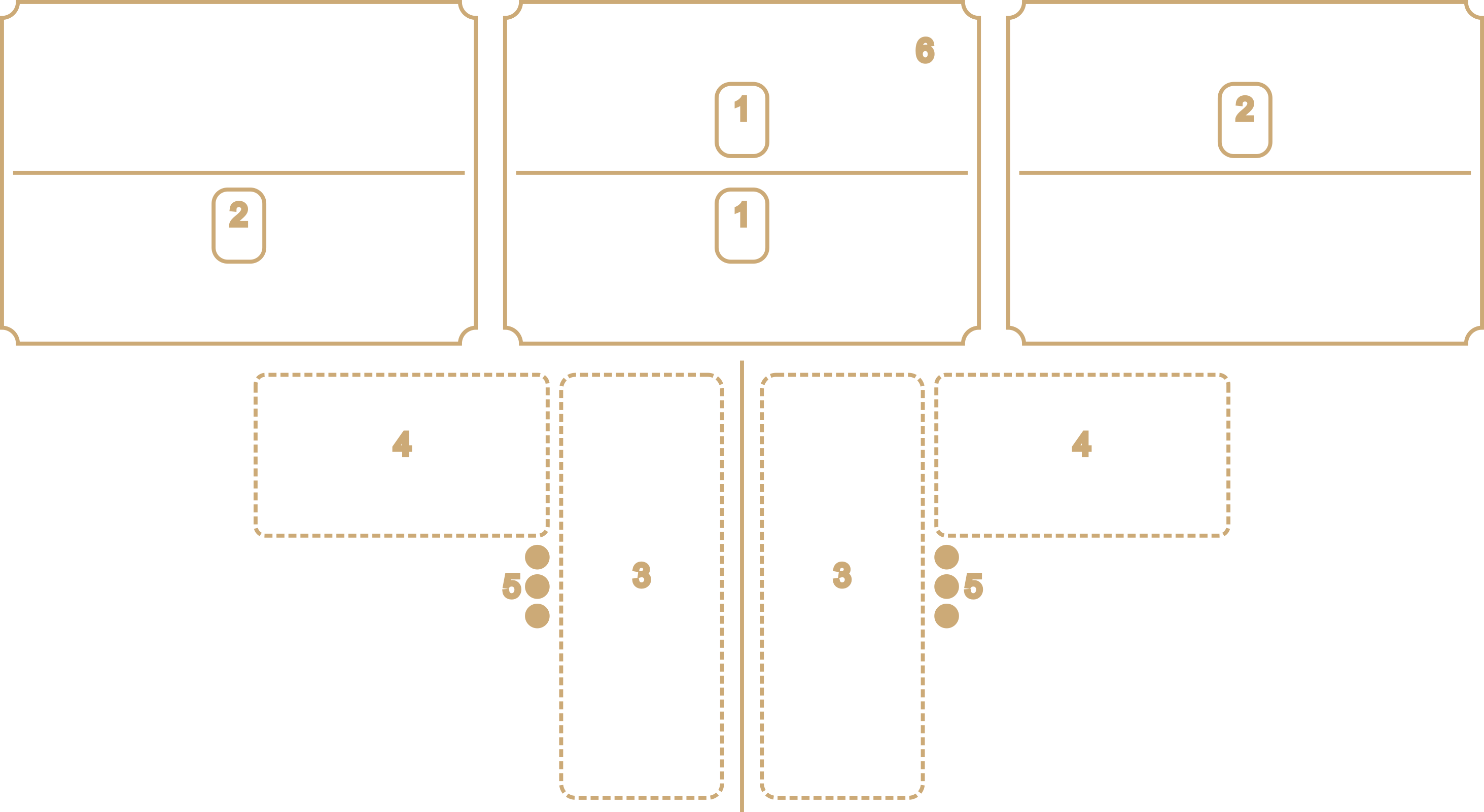
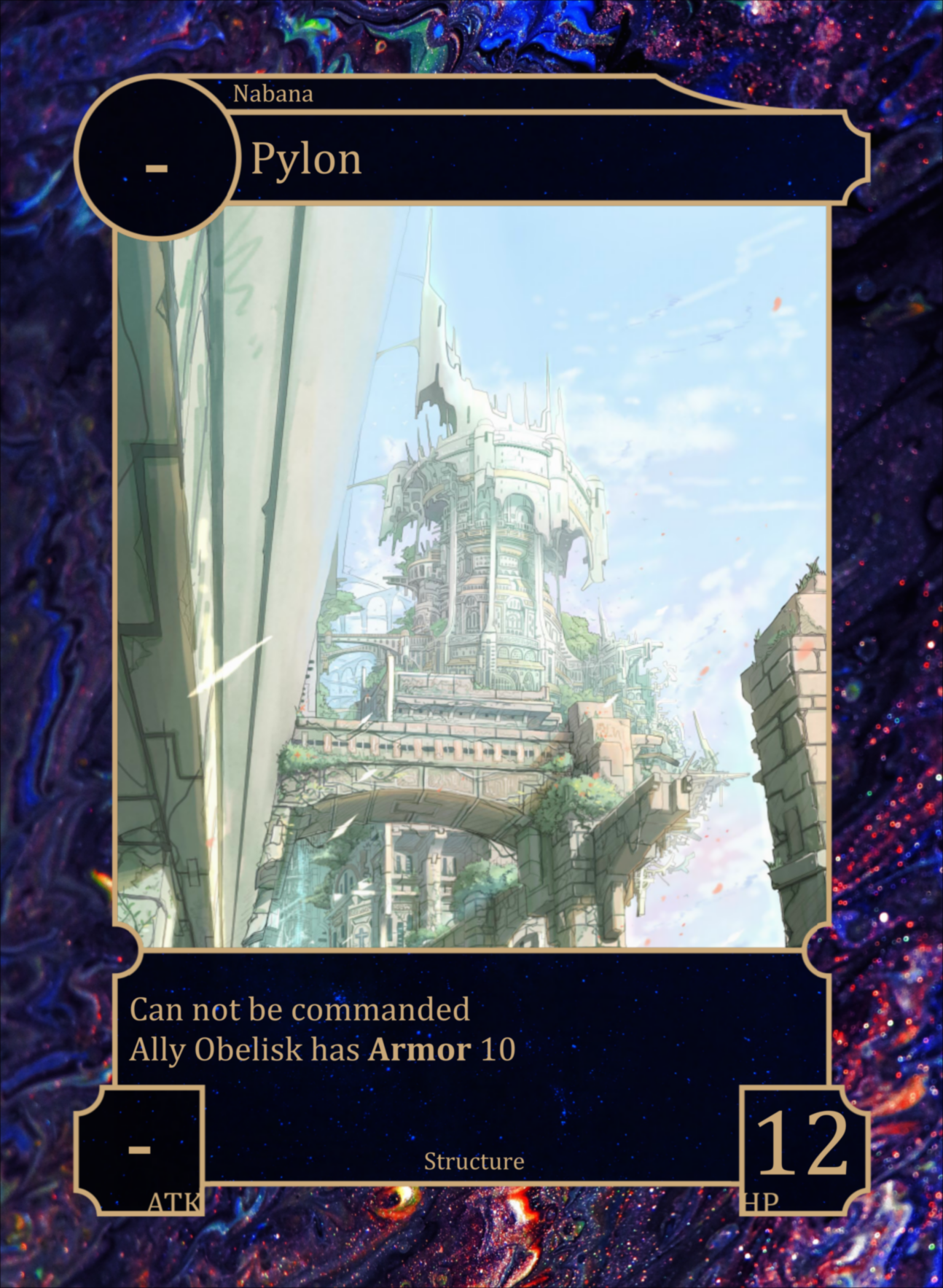
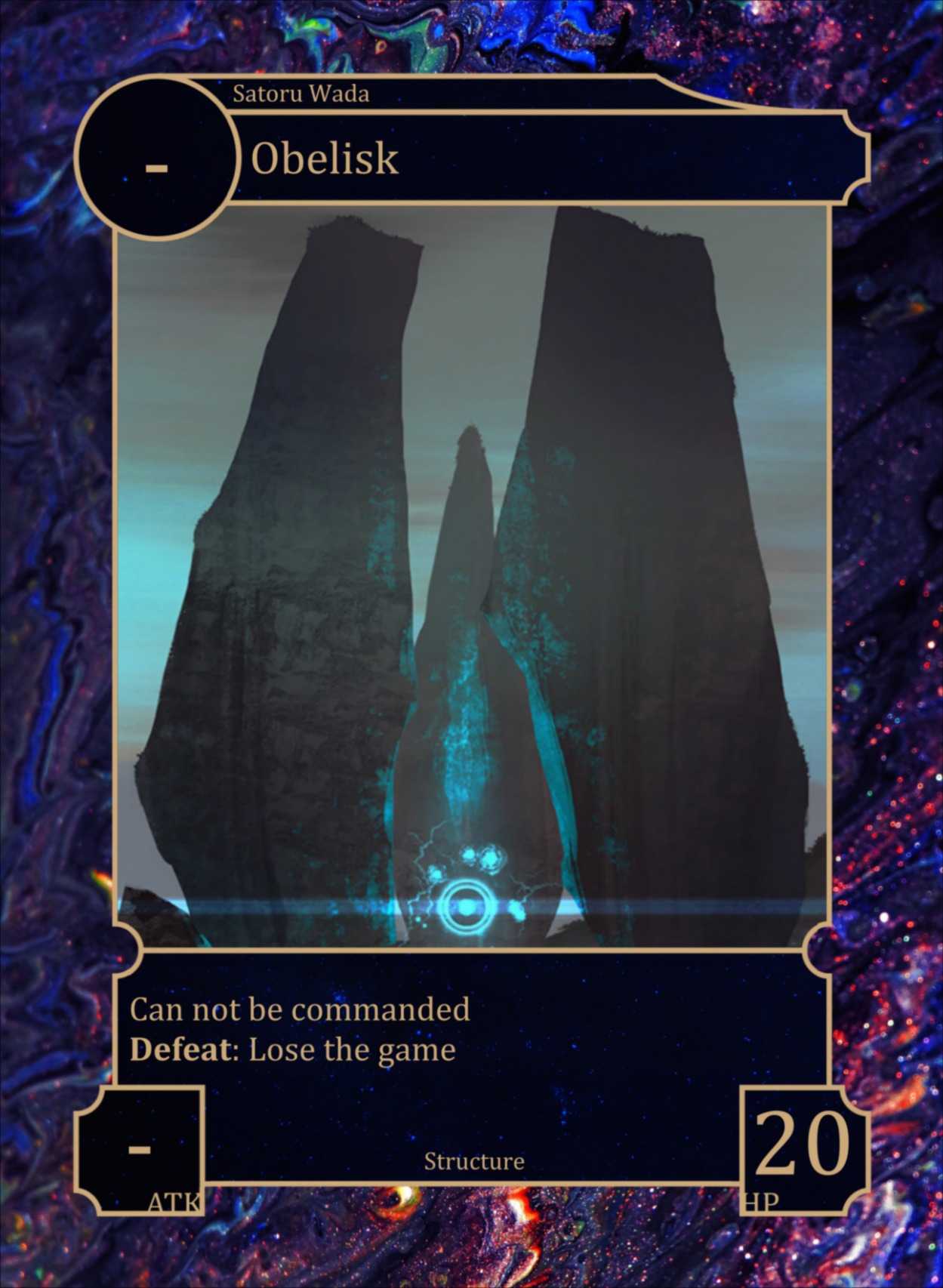 The Obelisk and Pylon cards
The Obelisk and Pylon cards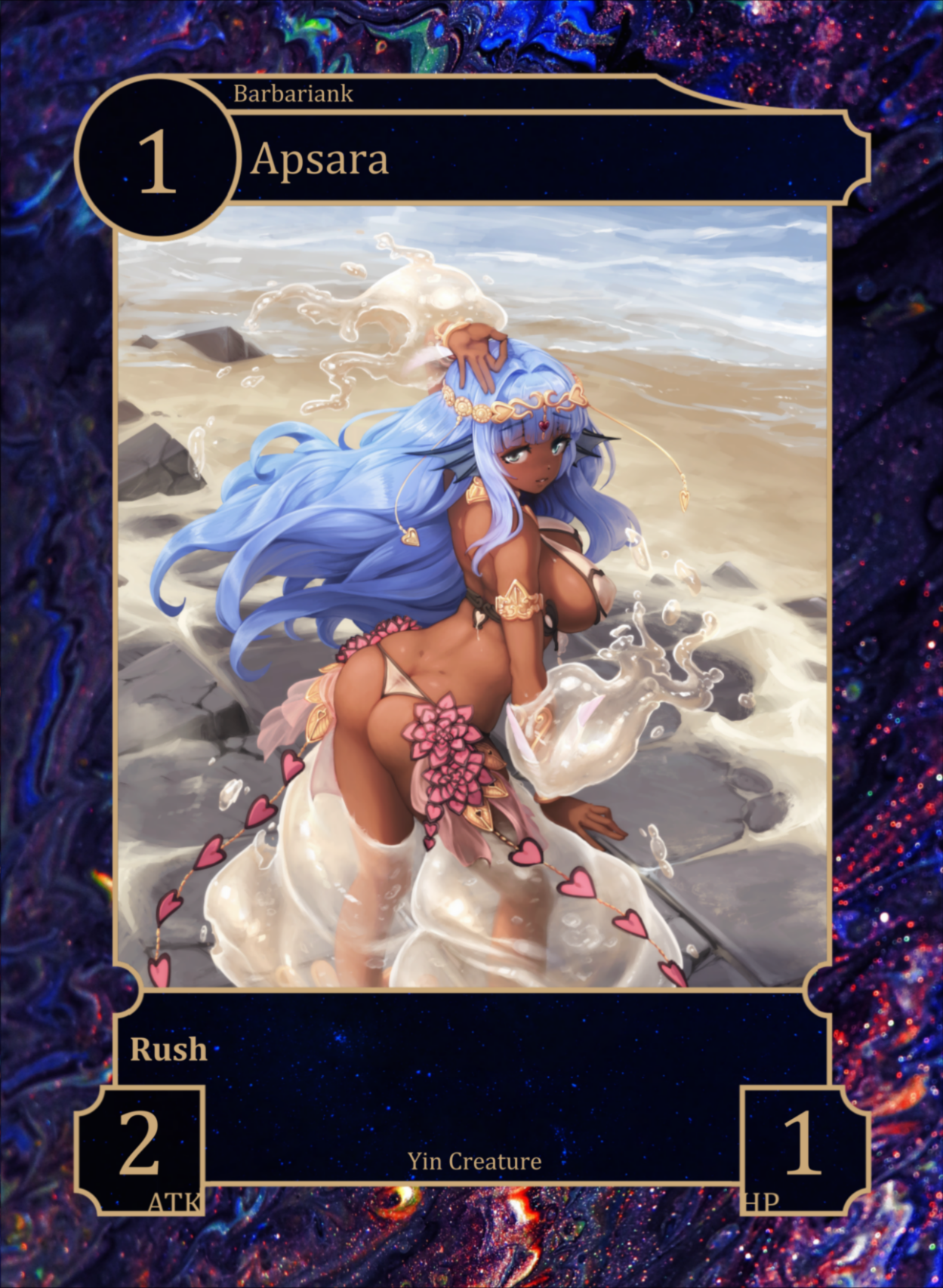
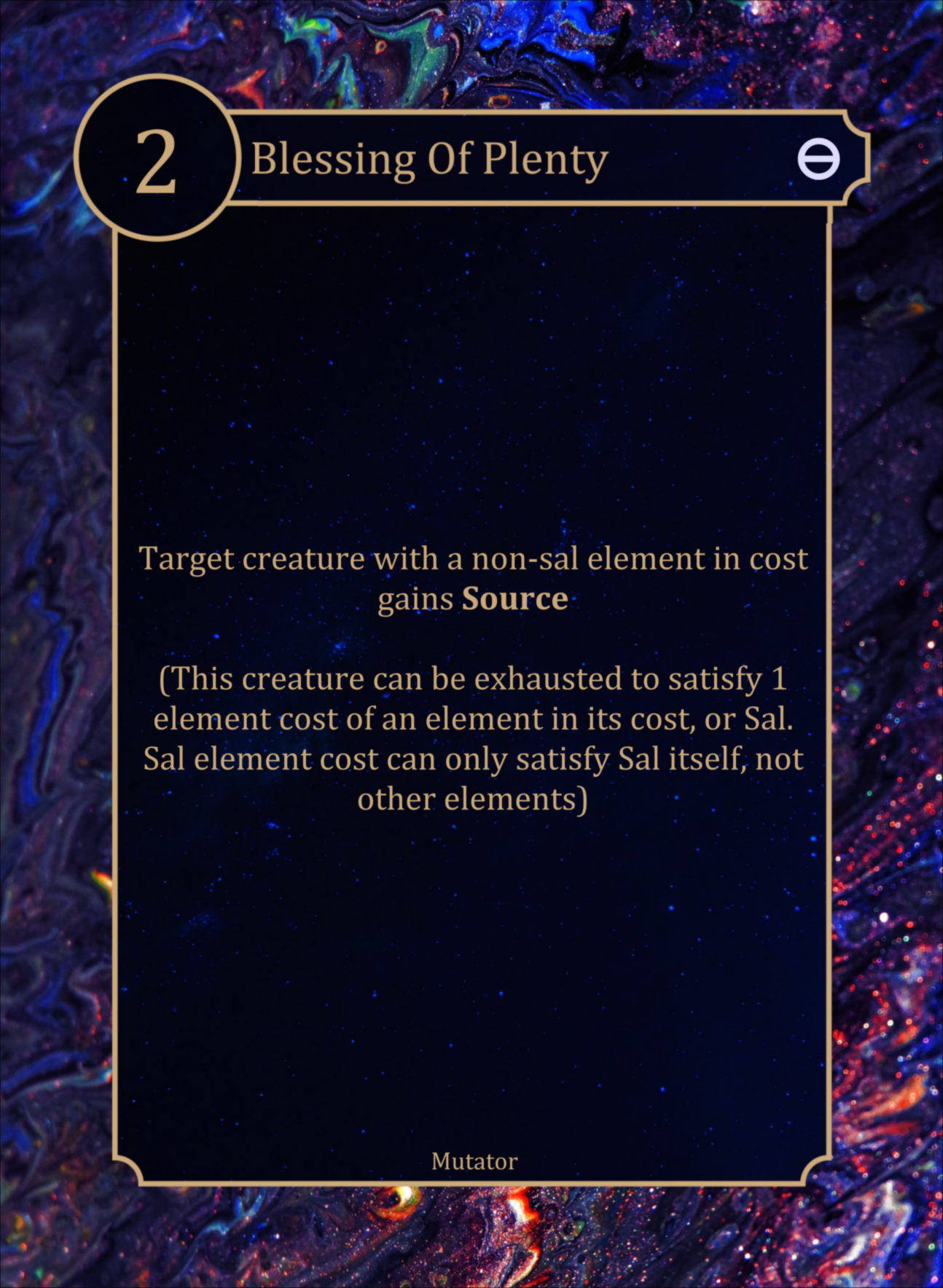

 Left to right, top to bottom: A Creature, a Mutator, an Enchantment and an Element
Left to right, top to bottom: A Creature, a Mutator, an Enchantment and an Element
All cards share three things:
Creatures serve as the main way to play the game and interact with your opponent.
Mutators allow you to modify creatures, empowering your own or impeding your opponent's. Their main text box explains their effect.
Note that most keyword abilities have a corresponding Mutator card. You can use them as reference for abilities if you're having a hard time remembering them.
Element cards serve mainly as a resource to play other cards, but most of them can be played to achieve some sort of effect without other cards. Their played effect is listed below the large element symbol.
Enchantments are similar to mutators, but they are always attached to your Obelisk, providing various effects. Take note that enchantments are permanent buffs that can not be removed by your opponent once played.
The only two structure cards are the Obelisk and the Pylon. The distinction between a Unit and a Creature is important here - an effect that works on Units can influence a structure or a creature, while an effect that only works on Creatures would not be able to do anything with an Obelisk or a Pylon.
The two players alternate turns until one of the players wins or concedes. The player who has more cards in their deck has the first turn. If both players have the same amount of cards, throw a coin. The first player starts with 4 cards drawn and 5 mana, while the second starts with 5 cards and 6 mana.
Each player can take up to 3 actions per turn, after which their turn ends and the opponent's begins. As noted before, the goal of the game is to destroy the enemy obelisk.
Possible actions are as follows:
With cards that have elemental costs (symbols to the right of their name) you need to pay their elemental costs in addition to the mana cost when playing them.
To pay for an element symbol, either discard the corresponding element card or a Sal card from your hand. Sal symbols in cost can be satisfied by any element card.
You can also exhaust creatures with Source to pay for elemental costs (as a part of playing the card). Each exhausted creature pays for 1 symbol that matches one of the symbols in its cost, or Sal. Note that you can't exhaust Source creatures when you don't have anything to pay for.
There aren't a lot of limits while building your deck, but keep the following rules in mind:
After building your deck, pick out any 6 cards from it - they will be in your library. The rest will be your main deck.
Swift: This keyword indicates Swift Actions. You can perform a Swift action before each of your normal ones without actually consuming it. Using a second Swift Action in a row will still consume an action as normal though.
Yin, Yang and Void: Yin cards are creatures that have more ATK than HP. Yang Creatures are ones that have more HP than ATK. Void ones are those that have an equal amount of HP and ATK.
The type of the creature depends only on the text written on the card - a 3/4 creature is always Yang, regardless of modifiers, unless an effect directly states that it changes the type.
Frontline: When a frontline unit can be attacked, only frontline units can be attacked. Ignored by units who have Ranged.
Tough: When this unit receives damage and has more than 1 remaining HP, this damage can only reduce its remaining HP to 1.
Counter-attack: When attacked, if this unit is not exhausted and is able to attack the attacker it will automatically attack. This attack will still occur even if the counter-attacker is defeated by the initial attack.
Thorns: When attacked, attacker receives damage equal to damage dealt. Ignored if attacker has ranged, unless the target also has ranged.
Armor X: Decreases all instances of damage received by the armor value (the X), but damage can never be decreased below 1 by this keyword.
Draining: Creatures attacked by this unit will exhaust. Takes priority over Counter-attack.
Ranged: Ignores Frontline, Counter-attack and Thorns. Counter-attack and Thorns will not be ignored if target also has Ranged.
Vampirism: This unit heals for amount of damage it deals whenever it attacks. This does not count overkill damage.
Immortal: This unit is transferred back to the owner's hand instead of the discard when defeated.
Rush: You can command this unit immediately after playing it, without using up an action - as this is a part of the card's effect.
Leader: Played ally units can be summoned in the same field as this unit.
Trickster: Can only be attacked by other tricksters, unless there are no non-trickster allies
Source: Can be exhausted to satisfy 1 element cost of an element in its cost, or Sal. Sal element cost can only satisfy Sal itself, not other elements.
Manaless: Creature does not grant mana when it un-exhausts.
Tireless: Creature does not exhaust, and ignores any effects that would force it to exhaust.
Servant: When an ally exhausts, this creature can be exhausted instead. Can be combined with tireless
Seek: Seeking is drawing cards of your choice. You always shuffle after seeking, and you always seek when drawing from library.
Evolve: Creatures with this keyword replace an allied creature when played. This removes any damage, but transfers the mutators and other tokens from the old creature. Evolve is often restricted (ex. "Evolve a yang creature"), but when it's not you can replace any allied creature. When you evolve, cover the old creature with the new one. This overlap is retained when the creature is moved between hand, fields or library - just like a mutator. A creature that was evolved can be played ignoring the Evolve keyword - it counts as already being satisfied.
All triggers only activate their effects after the associated action was taken.
Kill: [effect] - The effect happens whenever this unit defeats another unit.
Defeat: [effect] - The effect happens when this unit is defeated.
Exhaust or Exhausted: [effect] - The effect happens when this unit is exhausted.
Attack: [effect]- The effect happens whenever this unit attacks.
Move: [effect] - The effect happens when this unit moves.
Played: [effect] - The effect happens when this card is played.
"⤥: [Effect]" OR "X✧: [Effect]" - Manual trigger, also referred to as "Actives". You can command the unit to execute the effect instead of attacking/moving. "⤥" means "Exhaust" and "X✧ " means "pay X✧". If both are present, you need to do both.
Some manual triggers literally have "X✧" as their cost. You can pay any amount of✧ to activate such a trigger, and the effect will be adjusted depending on the amount.